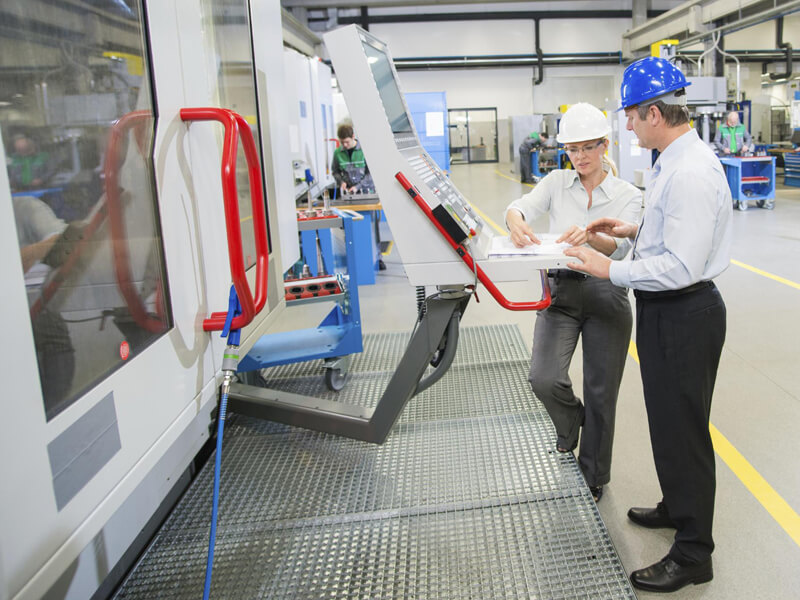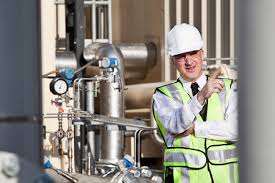

By the end of this course participants will be able to
- Develop both fundamental and practical understanding of central issues in processes used in oil, gas, petrochemical, chemical, and allied facilities together with a practical understanding of central issues in mechanical engineering as applied in those industries.
- Understand the various static and rotating equipment used in the petrochemical environment.
- Apply different maintenance strategies and philosophies.
- Easily identify and assess active degradation of mechanisms and the failures they may cause
- Enhance their competencies in Mechanical design of pressure equipment and piping systems in compliance with applicable codes, standards, and regulations.
All Technical and nontechnical personnel in the chemical, petrochemical, oil and process and mechanical industries, petroleum engineers, production engineers, maintenance and project engineers, trainee mechanical engineers, trainee process engineers, RandD chemists, plant chemists, plant operators and economists.
Introduction and Fundamentals of Process Engineering
Process engineering basics
- Mass and energy balances
- Batch and continuous processes
- Reactor types
- Process equipment and flow diagrams
Flammability
- Electrical area classification
Risk Management and Hazard Studies
Hydraulics and Fluid flow
- Pressure and head
- Bernoullis theorem and its field applications
- Flow of liquids
- Reynolds number and pressure drop in pipes
- Twophase and multiphase flow
Enthalpy and thermodynamics
Principle of process relief devices and process design of relief systems
- Principles of pressure vessel and piping design
Mechanical Equipment Types and application guidelines
- Pumps
- Compressors
- Mixers
Heat Transfer and Reaction Engineering
Heat Transfer
- Thermal conductivity
- Conduction and convection
- Insulation
- Heat transfer coefficients and calculation
- Heat exchangers, type and sizing
- Steam reboilers
- Condensers and subcooling
- Introduction to energy recovery
Catalysis and Reaction Engineering
- Chemical reactions
- Reaction kinetics
- Introduction catalysis
- Green Chemistry and Engineering
Reactor Design and Operation
Distillation Processes and Equipment
Distillation basics
- Gas/Liquid separation
Distillation equipment Columns and vessels
- Columns and vessels Sizing and selection guidelines
- Column and vessel internals Types and selection guidelines
- Troubleshooting of process equipment
Separation Processes and Equipment
Overview of Other Separation Processes
- Absorption and adsorption
- Amine sweetening
- Solid Liquid separation
- Effluent treatment [in refinery and petrochemical] industries
Process Control and Economics
Process Control Basics
- Classification of control systems
- Measured variables
- Simple feedback control
Process Economics
- Preliminary economic analysis
- Fixed and variable costs, break even analysis
- Calculating raw materials usage
- Estimating the cost of process equipment and plants
CDGA attendance certificate will be issued to all attendees completing minimum of 75% of the total course duration.
| Code | Date | Venue | Fees | Register |
|---|---|---|---|---|
| PE139-02 | 05-04-2026 | Dubai | USD 5450 | |
| PE139-03 | 05-07-2026 | Doha | USD 5450 | |
| PE139-04 | 04-10-2026 | Jeddah | USD 5450 |

Process engineering is at the heart of much of the chemical, oil, gas, and petrochemical industries. It requires familiarity with chemical engineering principles, but also with many of the other engi ...

the design, operation, control, and optimization of chemical, physical, and biological processes through the aid of systematic computer-based methods. Process engineering encompasses a vast range of i ...
Providing services with a high quality that are satisfying the requirements
Appling the specifications and legalizations to ensure the quality of service.
Best utilization of resources for continually improving the business activities.
CDGA keen to selects highly technical instructors based on professional field experience
Since CDGA was established, it considered a training partner for world class oil & gas institution
3012, Block 3, 30 Euro Business Park, Little Island, Co. Cork, T45 V220, Ireland
Mon to Fri 09:00 AM to 06:00 PM
Contact Us anytime!
Request Info